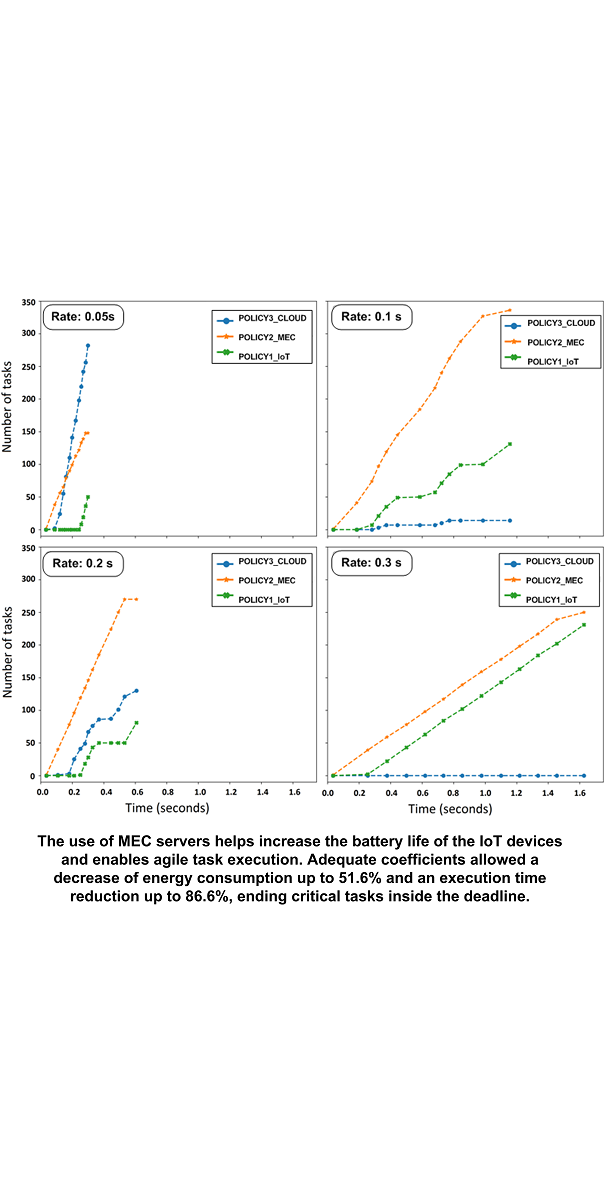Advances in communication technologies have made the interaction of small devices, such as smartphones, wearables, and sensors, scattered on the Internet, bringing a whole new set of complex applications with ever greater task processing needs. These Internet of Things (IoT) devices run on batteries with strict energy restrictions. They tend to offload task processing to remote servers, usually to Cloud Computing (CC) in datacenters geographically located away from the IoT device. In such a context, this work proposes a dynamic cost model to minimize energy consumption and task processing time for IoT scenarios in Mobile Edge Computing environments. Our approach allows for a detailed cost model, with an algorithm called TEMS that considers energy, time consumed during processing, the cost of data transmission, and energy in idle devices. The task scheduling chooses among Cloud or Mobile Edge Computing (MEC) server or local IoT devices to better execution time with lower cost. The simulated environment evaluation saved up to 51.6% energy consumption and improved task completion time up to 86.6%.

